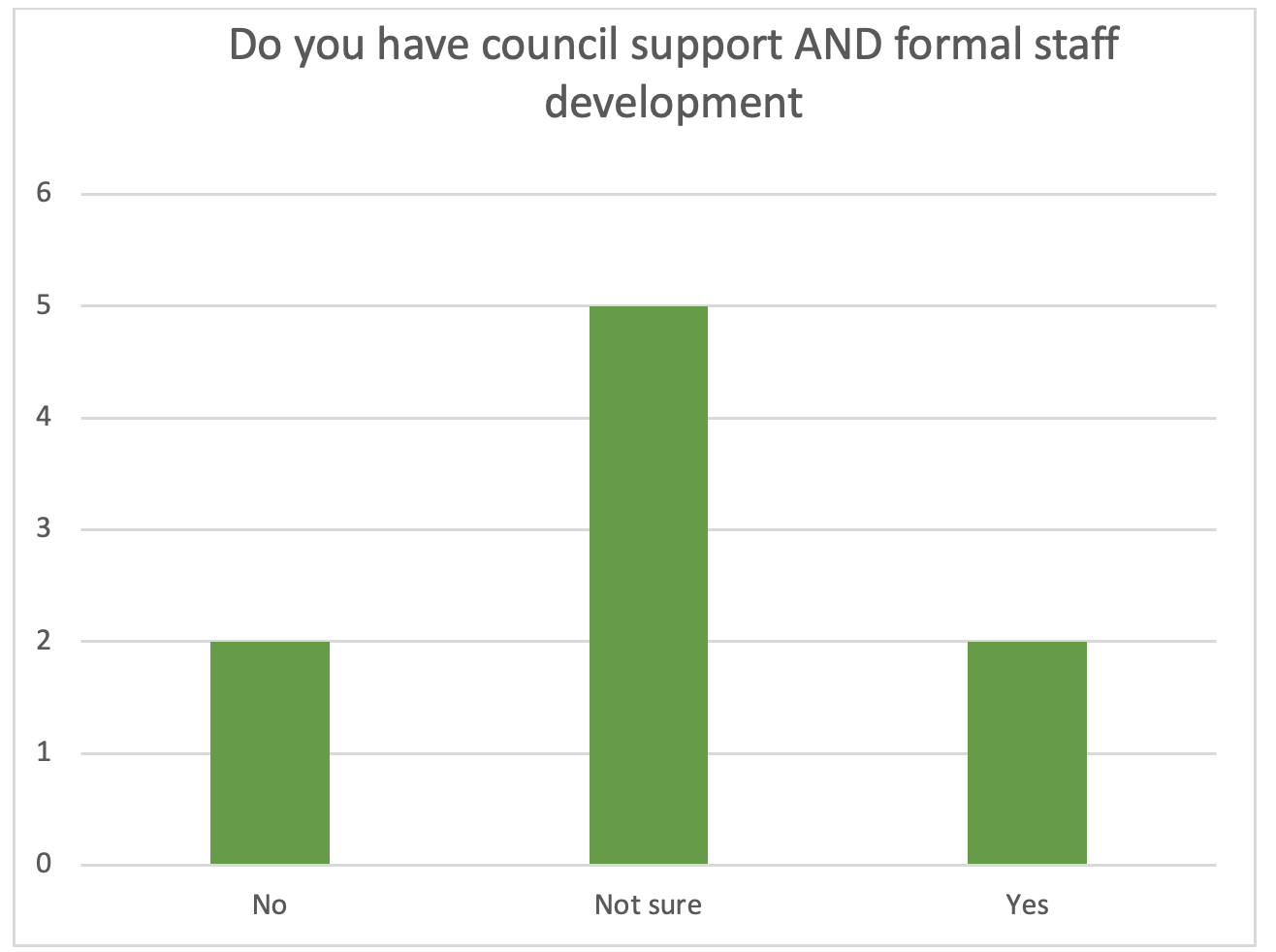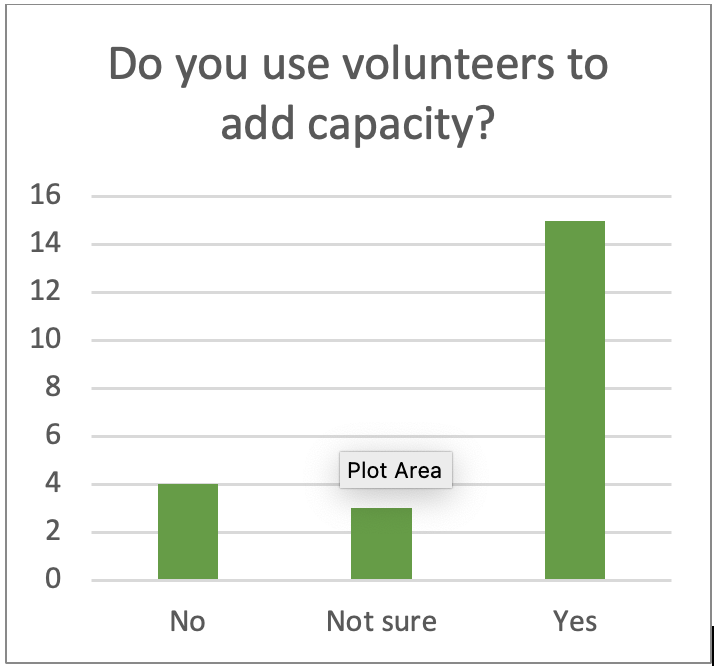21st February 2024
Who's got a digital inclusion strategy? Who is supported by their council? Who's training staff or using volunteers? How are libraries dealing with digital inclusion?
We gave a talk last month to the brilliant Library On community of practice. It was fascinating for us (and for them too we hope!). Before we got going with what we know, we got to ask the 22 libraries attending a few questions about what they were up to...
1. Who has a digital inclusion strategy? Slightly more than half (55%). 14% didn't have one and 32% said they weren't sure.
2. Who is supported by the council? 64% said they were. But with the same confusion around whether get were or not (at 23%)
Curiously, the people who answer yes to 1) and 2) are not always the same! It might seem logical for strategy to be supported by the council, but some libraries are doing it on their own, and others do get some guidance - but this support can feel piecemeal. The "don't-know" figure is also a crucial one that comes up again and again in this survey - if there is a vision somewhere, there's a clear lack of communication further down the line.
And having council support doesn't always lead to the same outcomes - as illustrated here. We asked "who has a formal digital skills offer for staff?" and two-thirds of respondents did. But having a formal skills offer doesn't track to who has council support. This could be a beautiful reflection of how one size doesn't always fit all and each library can do what it considers important - or it could be a slightly haphazard approach as organisations are forced to make their own digital strategies without much external guidance.
Co-incidentally, exactly same number said yes to "who has a formal digital offer for users?" but they're not always the same organisations, some help staff, some help users, not everyone helps both.
One thing many libraries have in common is who is using volunteers to supplement capacity in this area. A sign of how stretched budgets are, but also how libraries are adapting to make a difference.
It's clear that libraries are most definitely "superheroes" of digital inclusion, with a unique potential to reach both those most in-need and hardest-to-reach when it comes to digital skills. And funding, staffing and time-permitting when it works, it works brilliantly. But it also feels like there could be much more support - and when that's in place, it has the capacity to make a much bigger difference.
Here's lots more facts and stats about libraries, and a couple of case-studies on how libraries in Wembley and Southampton run their digital inclusion offering.


